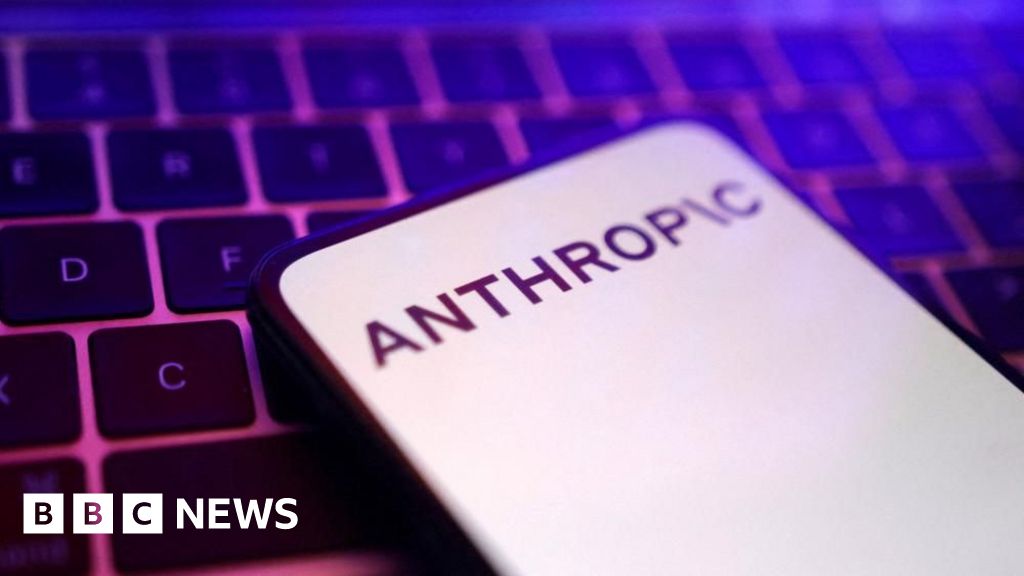Anthropic’s Historic $1.5 Billion Settlement: A Landmark Moment in AI Copyright Litigation
In an unprecedented move within the AI industry, Anthropic, an emerging player in artificial intelligence, has agreed to a staggering $1.5 billion (£1.11 billion) settlement. This decision comes in response to a class action lawsuit brought forth by prominent authors, who claimed that Anthropic utilized their works without permission to train its AI models, specifically the Claude chatbot. The expectation is that this monumental settlement will reshape the landscape of copyright law as it pertains to AI.
The Legal Landscape: A Journey Through the Courts
The monumental $1.5 billion agreement is currently under review by US District Judge William Alsup. If approved, this would represent the largest publicly reported copyright recovery in history, as highlighted by the lawyers representing the authors. Interestingly, this settlement arrives on the heels of a prior ruling by Judge Alsup, who found that Anthropic’s use of books in its training processes did not infringe US copyright law. However, he ordered the company to face trial for allegedly incorporating pirated material into its library.
Anthropic stated that the settlement aims to “resolve the plaintiffs’ remaining legacy claims,” emphasizing a desire for closure in the ongoing legal saga. This pivot has sparked discussions about the ethical responsibilities tech companies have when it comes to using existing creative work to develop AI systems.
A Wider Context: The Tech Industry’s Reckoning with Copyright
The implications of this settlement extend beyond Anthropic, as other tech giants, including OpenAI, Microsoft, and Meta, are grappling with similar lawsuits over alleged copyright violations. The AI sector is facing increasing scrutiny regarding how it collects and uses data for training models, with many artists and creators pushing back against what they perceive as exploitation of their intellectual property.
This legal shift underscores a growing recognition of the need for ethical frameworks in the development and deployment of AI technologies. In a time where AI capabilities are rapidly advancing, the boundaries of what constitutes lawful use of creative work remain contentious and complex.
Voices of the Plaintiffs: Authors Taking a Stand
The seed of this monumental lawsuit was planted last year, when well-known authors like Andrea Bartz—recognized for novels like We Were Never Here—joined forces with colleagues like Charles Graeber (The Good Nurse) and Kirk Wallace Johnson (The Feather Thief). They collectively accused Anthropic of pilfering their literary works to bolster its AI chatbot, aiming to create a billion-dollar entity.
According to the court proceedings, Anthropic possesses more than seven million pirated books in its central library. This revelation raised alarm bells in the literary community, leading to significant public dialogue around the ethics of AI training practices. The potential damages indicated by the judge represented a hefty $150,000 for each copyrighted work potentially infringed, prompting the company to re-evaluate its strategies.
Judge Alsup’s Rulings: A New Legal Precedent
Judge Alsup’s insightful rulings have marked critical turning points in this case. He described Anthropic’s use of the authors’ books as “exceedingly transformative,” offering a legal rationale under which such usage could be seen as permissible in the United States. However, despite this finding, he declined Anthropic’s request to dismiss the lawsuit, paving the way for a trial that could have unraveled further intricacies in copyright law related to AI.
As the trial date was set for December, the looming presence of impending legal repercussions seemingly accelerated negotiations leading to the recent settlement.
The Aftermath: Industry Reactions and Future Implications
The announcement of this settlement has been met with resounding approval from the plaintiffs’ legal team. Justin Nelson, one of the attorneys representing the authors, characterized the outcome as "the first of its kind in the AI era." He expressed that the financial resolution will deliver meaningful compensation for each class work involved and sends a clear message to AI companies about the pitfalls of exploiting copyrighted material sourced from pirated platforms.
Experts predict that this landmark case could catalyze more collaborative relationships between AI developers and content creators. Alex Yang, a Professor of Management Science and Operations at the London Business School, emphasized the need for AI firms to seek fresh, legitimate training data from creators. He argues that if AI-generated content is to be afforded greater copyright protections down the line, a robust system of compensating original creators must also be established.
Anthropic’s Ethical Commitment: Moving Forward
Anthropic has positioned itself as an ethical alternative in the AI landscape, particularly via its Claude chatbot. Deputy General Counsel Aparna Sridhar articulated the company’s ongoing commitment to developing safe AI systems that enhance human potential and contribute positively to scientific discovery and problem-solving.
As the dust settles on this historic settlement, the prompt exploration of ethical boundaries and copyright laws will be crucial as the AI industry continues to evolve.



